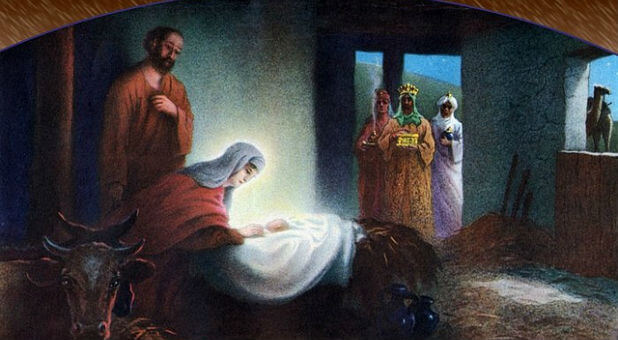The story of Christ’s birth is told in the Gospels of Matthew and Luke and referred to other places in Scripture because it fulfilled all the prophecies about God sending the Messiah. But Scripture never says the day of Christ’s birth. Nowhere are we commanded to celebrate His birthday—unlike the Jews who were told to tell the story of the Passover each year to remember how they were delivered from slavery in Egypt.
The word Christmas actually comes from Christ’s Mass. It was an attempt by the early Catholic church to “Christianize” the biggest pagan festival of the year around the time of the winter solstice. With the so-called “war on Christmas” where secular culture avoids any mention of Christ or even Santa or the word Christmas itself, it’s almost as if the culture is reverting back to a pagan celebration of the beginning of winter.
I discussed this on my “Strang Report” podcast this week with Archbishop Russell McClanahan of Tallahassee, Florida, who oversees 5,000 churches in the Communion of Evangelical Episcopal Churches.
You can listen to his explanation of how Dionysius Exiguus, a Scythian monk and abbot of a Roman Catholic monastery tried to establish what day to celebrate Christmas. And since he’s from a liturgical tradition, he tells how the season of Advent culminates on Christmas Day.
Whatever day we celebrate, the central theme of Christmas is the incarnation—that God became man in order to redeem man. Or as it says in Col. 2:9, that in Christ “lives all the fullness of the Godhead bodily.”
Of course, John opens his first epistle by saying that Christ was from the beginning “which we have heard, which we have seen with our eyes, which we have looked upon and our hands have touched (1 John 1:1). In other words, God come in the flesh.
This reminds me of hearing the winner of The Voice, Jordan Smith, sing “Mary, Did You Know” on the final night of the show. I love the lyric that says, “Did you know … when you kiss your little baby, you kiss the face of God?”
This is a mystery of how Christ could be both God and man. Yet we know He was, and it was God’s way to sacrifice His Son for the sins of the world.
As believers, we aren’t constrained by what the culture says or does. In our own homes and in our own hearts we reflect on the incarnation and ask God to give us—as Archbishop McClanahan urged our listeners to my podcast—for a deeper understanding of the incarnation we celebrate. In fact, Colossians 2:9 has special meaning in the J.B. Phillips paraphrase of the Bible, which says that in Christ “God gives a full and complete expression of himself (within the physical limits that he set himself in Christ).”
I’ll close by adding a reflection Archbishop McClanahan sent me that I hope blesses you:
As we approach Christmas Day, it is my sincere prayer that Christ will be born anew in your heart. As we celebrate Christmas, we celebrate the greatest miracle in all of us. Let us each take time to reflect upon the wonder of the Eternal Son being fleshed out in man.
A Personal Christmas reflection
For in time the timeless Son was brought forth. He whom nothing can contain has been contained in the womb of a woman.
He who was fleshless willingly took upon Himself flesh.
He who was without limitation became incarnate in our humanity without departing from His own nature.
Who has seen a child born of a virgin? But the order found in nature is overcome by the Spirit of God.
The Eternal Son, the Logos, the very thought of God manifest in human form was born of a virgin in Bethlehem of Judea.
Blessed birth of our Savior. Rejoice Christ is born.












